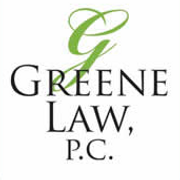
Estate planning ensures a person's legacy is protected and their wishes for their estate are carried out in the ways they prefer. Because estate plans can include multiple components, nearly all of which are legal- and financial-related, many people have questions about what arrangements make the most sense for their particular situation. Below, find answers to some of the more frequently asked questions.
Answers to Common Estate Planning Questions
What does estate planning include?
A will is an essential part of an estate plan; this document appoints an estate administrator and details who inherits you and how assets are distributed. Other arrangements to consider include trusts, in which ownership of certain assets passes directly to heirs without having to go through probate, living wills and advanced healthcare directives, which stipulate what medical care you want to receive if illness makes these decisions impossible at a later date, and a power of attorney, which grants another trusted party the ability to make specific legal and financial decisions if you can't.
Why is estate planning important?
 Estate planning safeguards your assets. It also allows you to look after loved ones' financial well-being even after you're gone. It removes some of the burden from them as well, eliminating the need for them to make important decisions on what happens to your estate. In some cases, estate planning may reduce death-related taxes.
Estate planning safeguards your assets. It also allows you to look after loved ones' financial well-being even after you're gone. It removes some of the burden from them as well, eliminating the need for them to make important decisions on what happens to your estate. In some cases, estate planning may reduce death-related taxes.
What happens if I don't have an estate plan?
If you die without a will or any kind of plan in place, the courts decide how your estate is distributed. This typically means following the state's next-of-kin succession laws. Depending on your family situation, this may not be a succession you would want. Estate planning gives you control and guarantees your wishes are honored.
Can I write estate plans on my own?
To make certain your will and other plans follow all state laws and that they account for the entirety of your estate, always consult a lawyer. Plans need to be drawn up according to specific legal guidelines, and there need to be witnesses present at the signing of most estate documents. Also, hiring an attorney makes it easy to update and amend your plans as life circumstances change.
When you need legal guidance in estate planning, trust Greene Law PC. With more than 25 years of experience, they represent clients throughout Hartford County, CT. They offer legal services in multiple practice areas, including estate planning, personal injuries, and bankruptcies. Call (860) 676-1336 to schedule a consultation for legal advice or visit them online to browse their services.
About the Business
Have a question? Ask the experts!
Send your question

